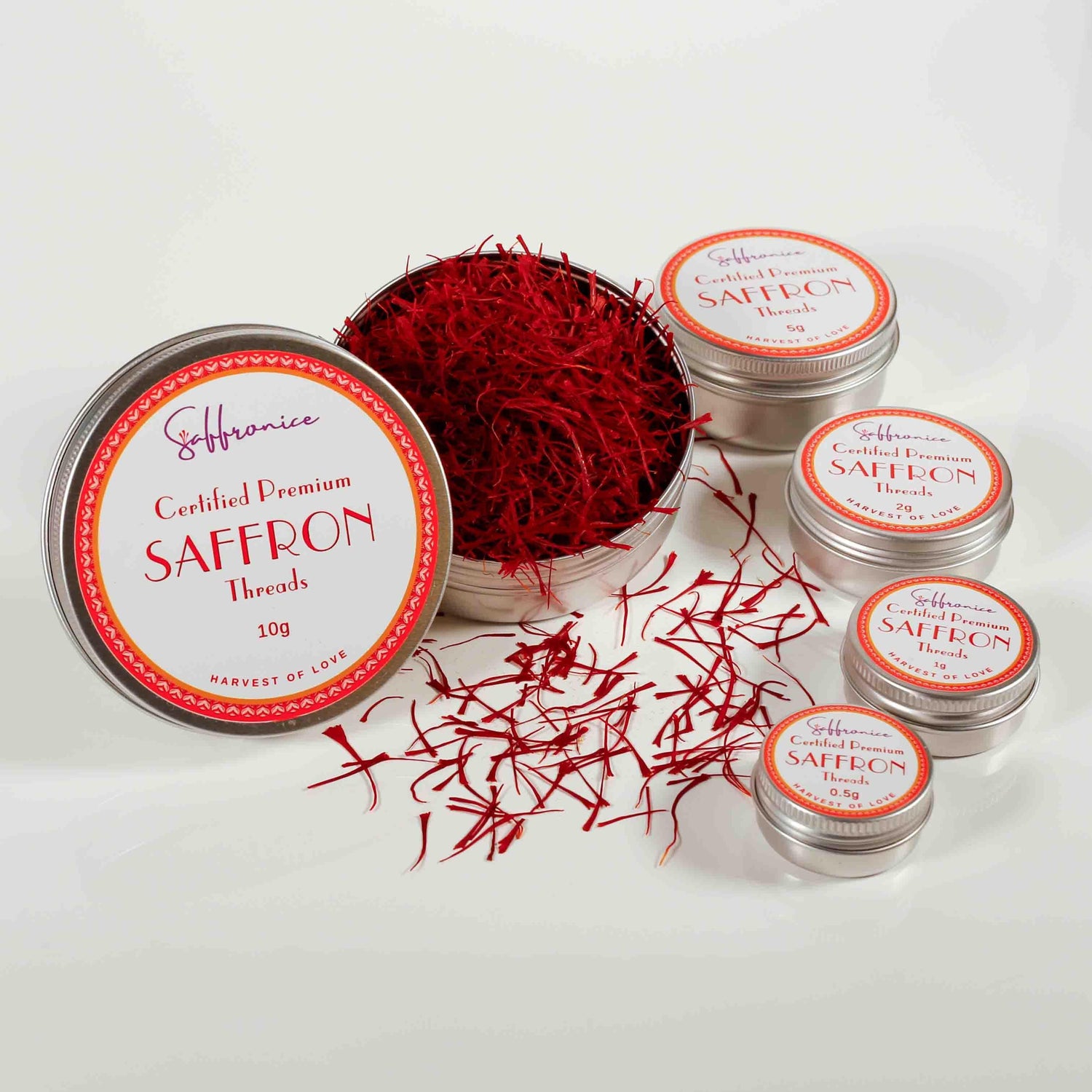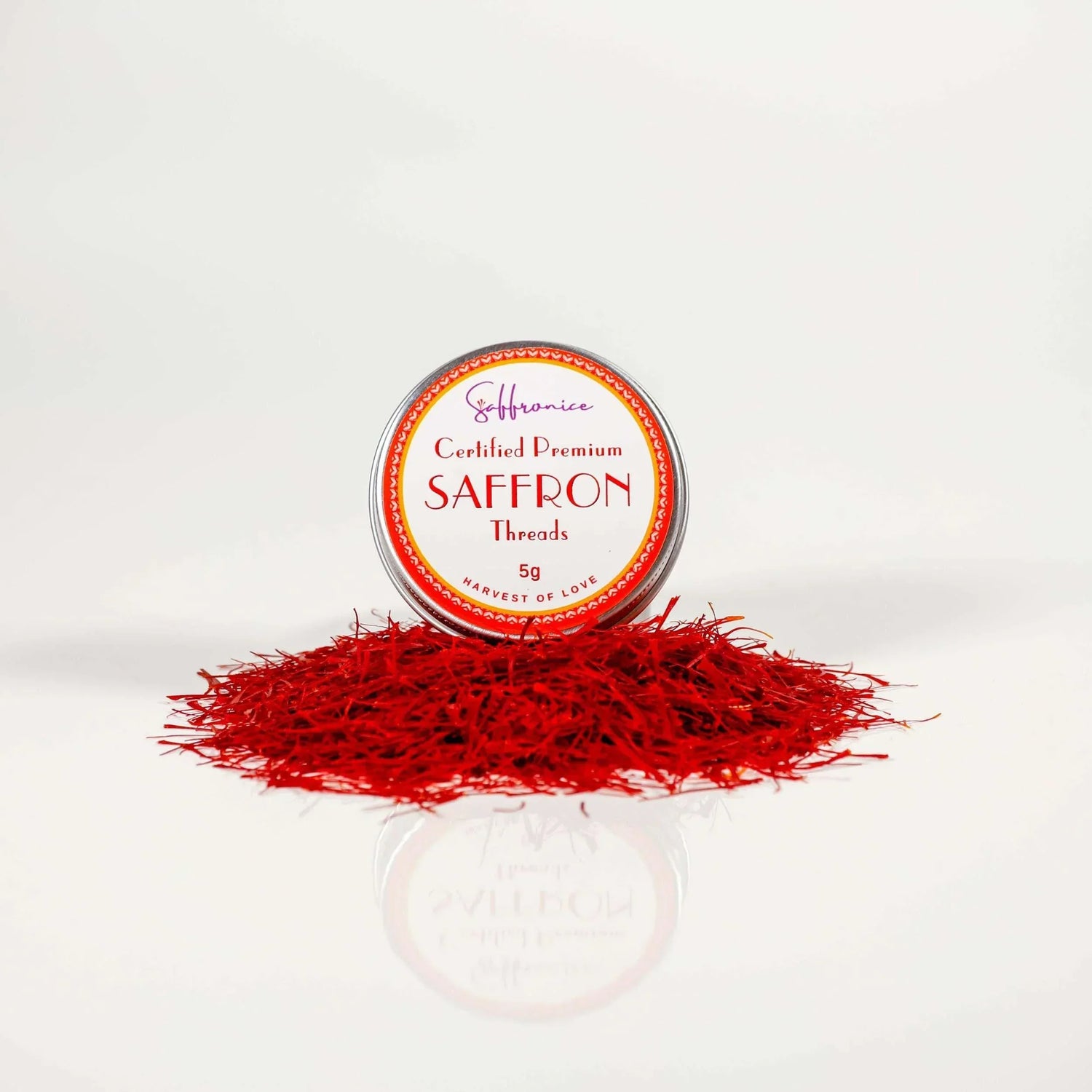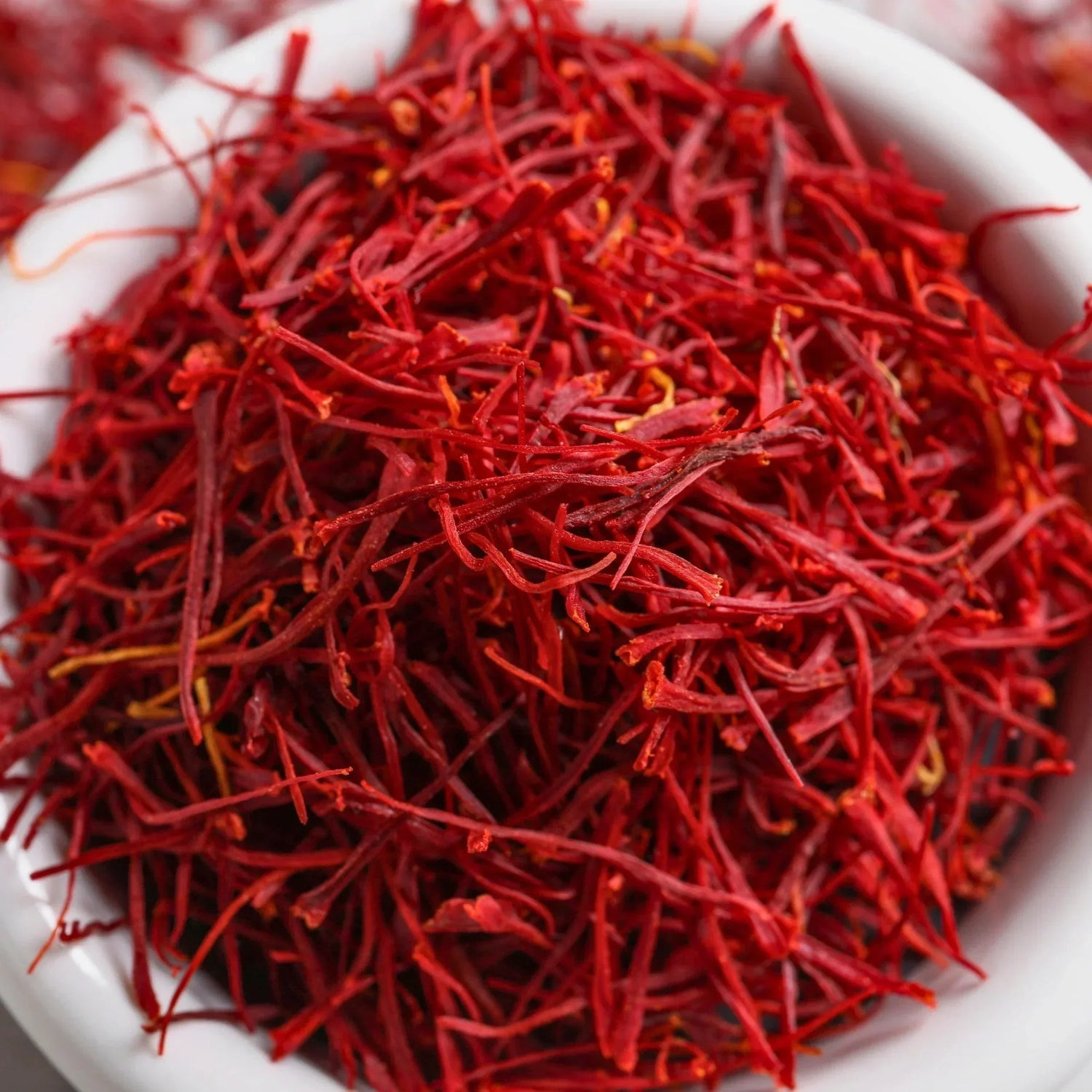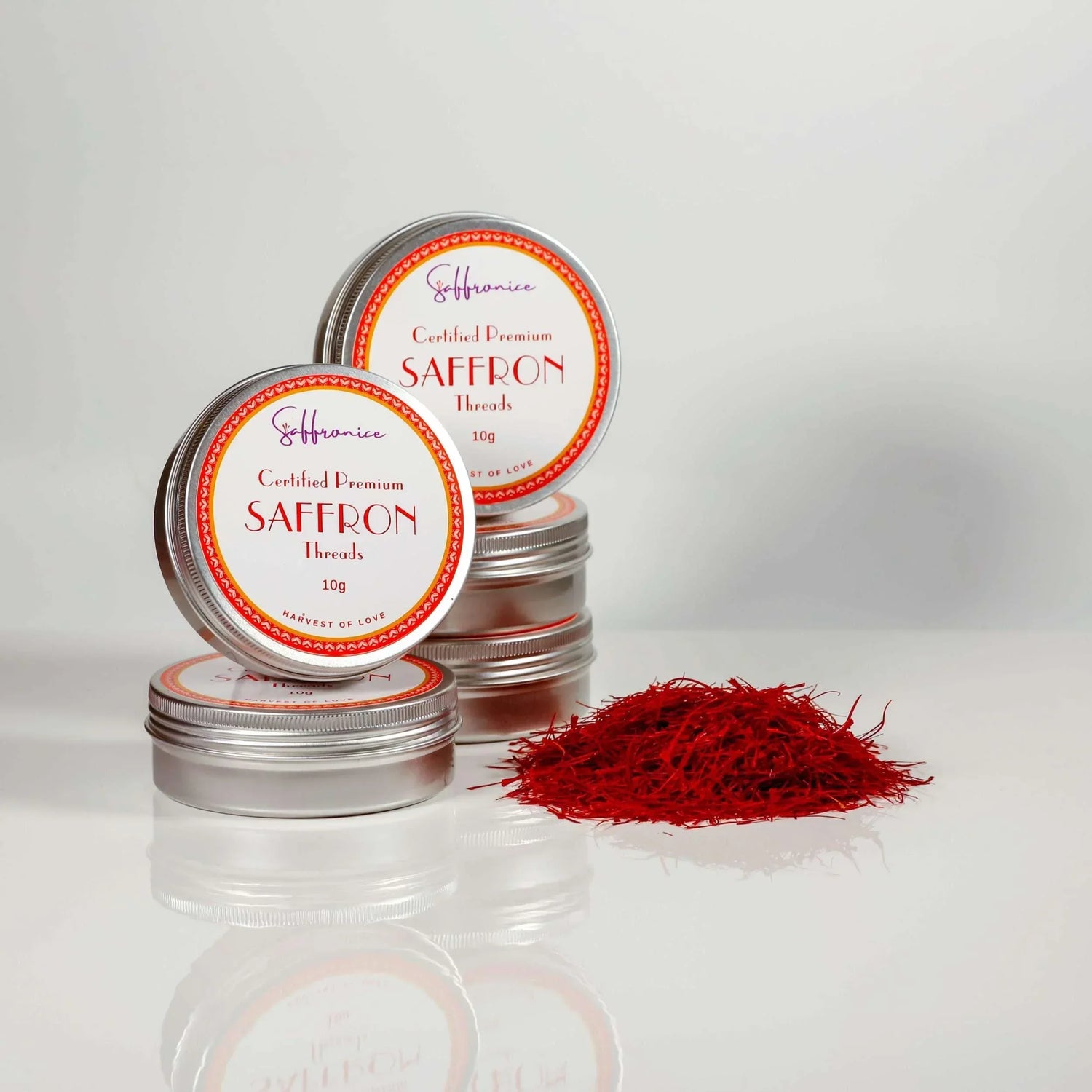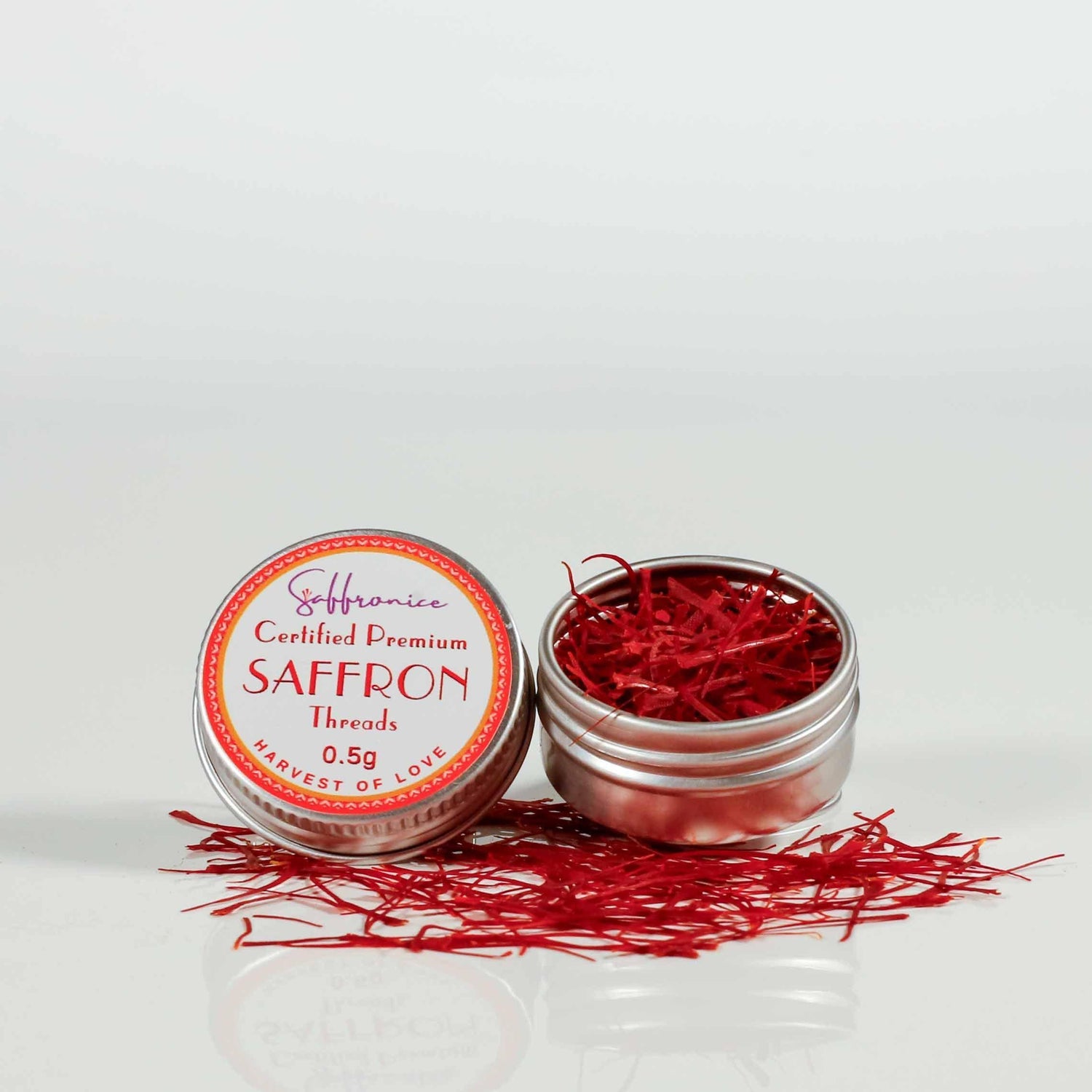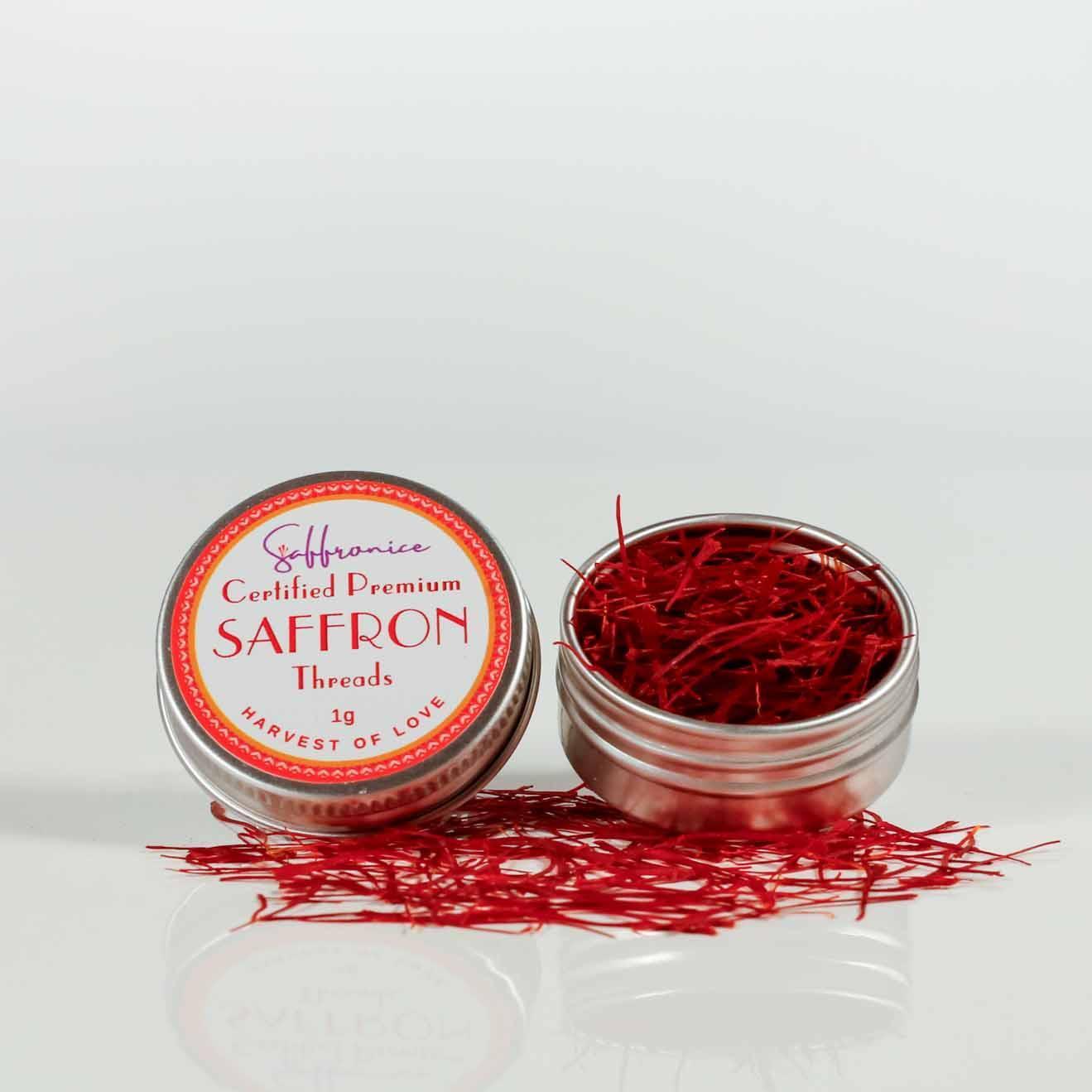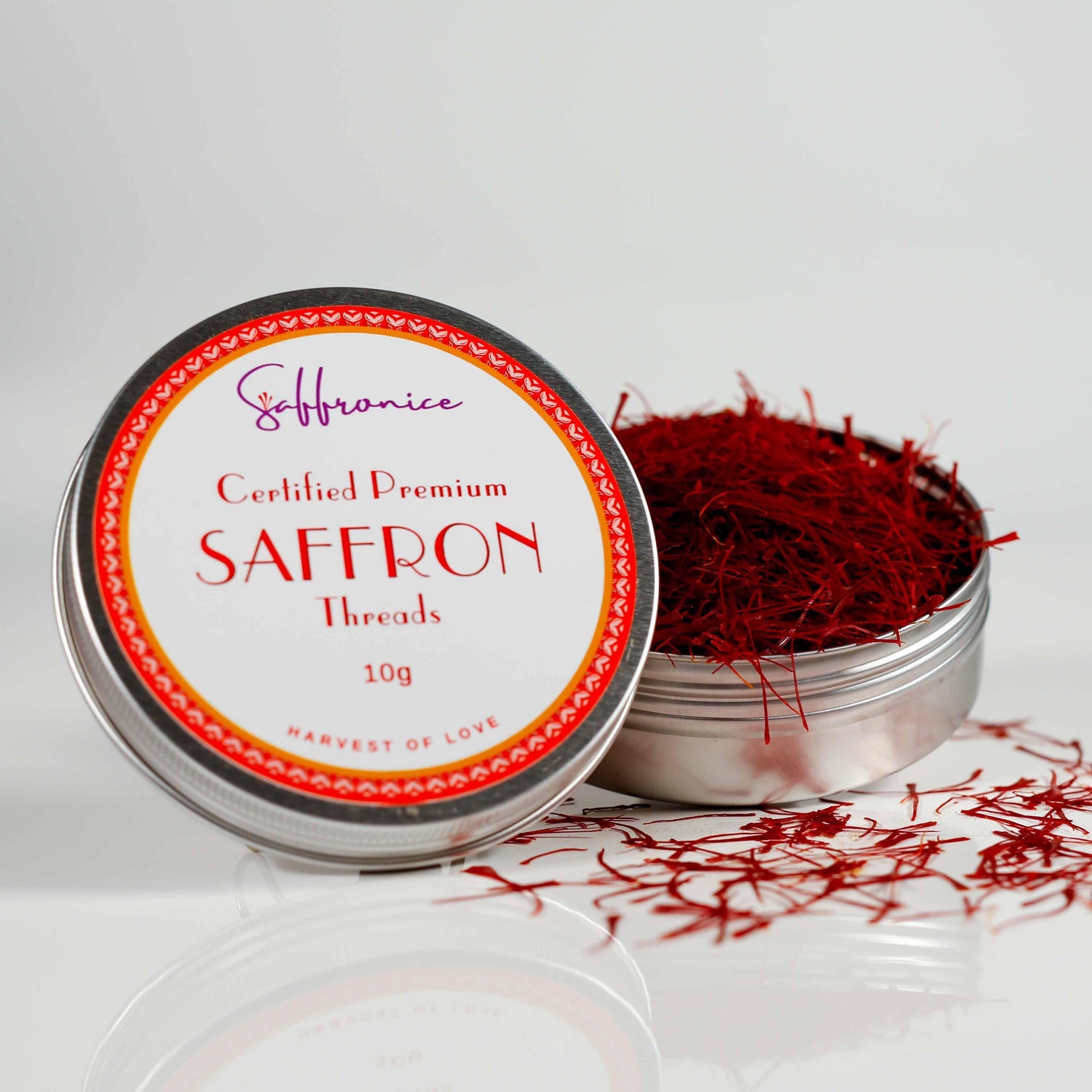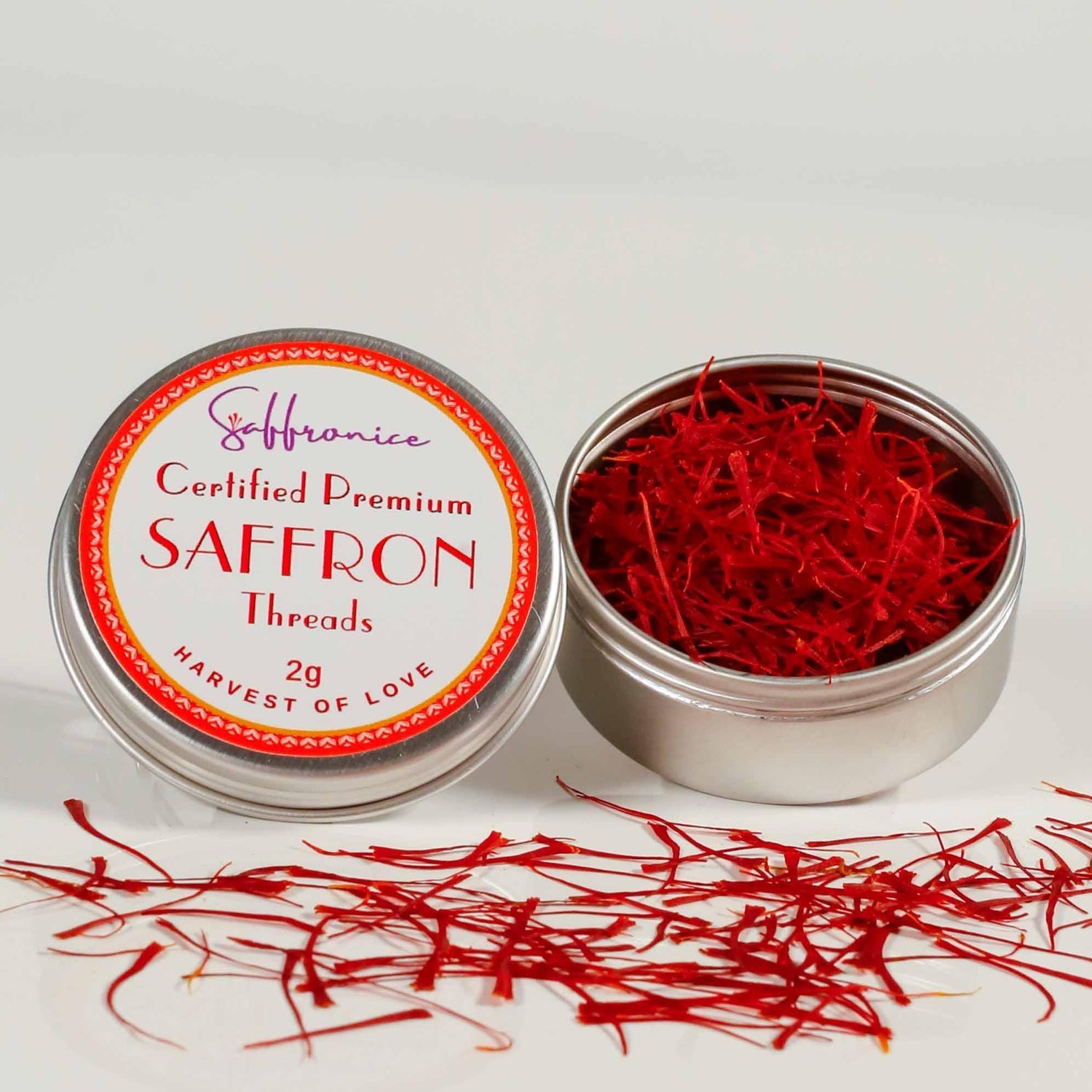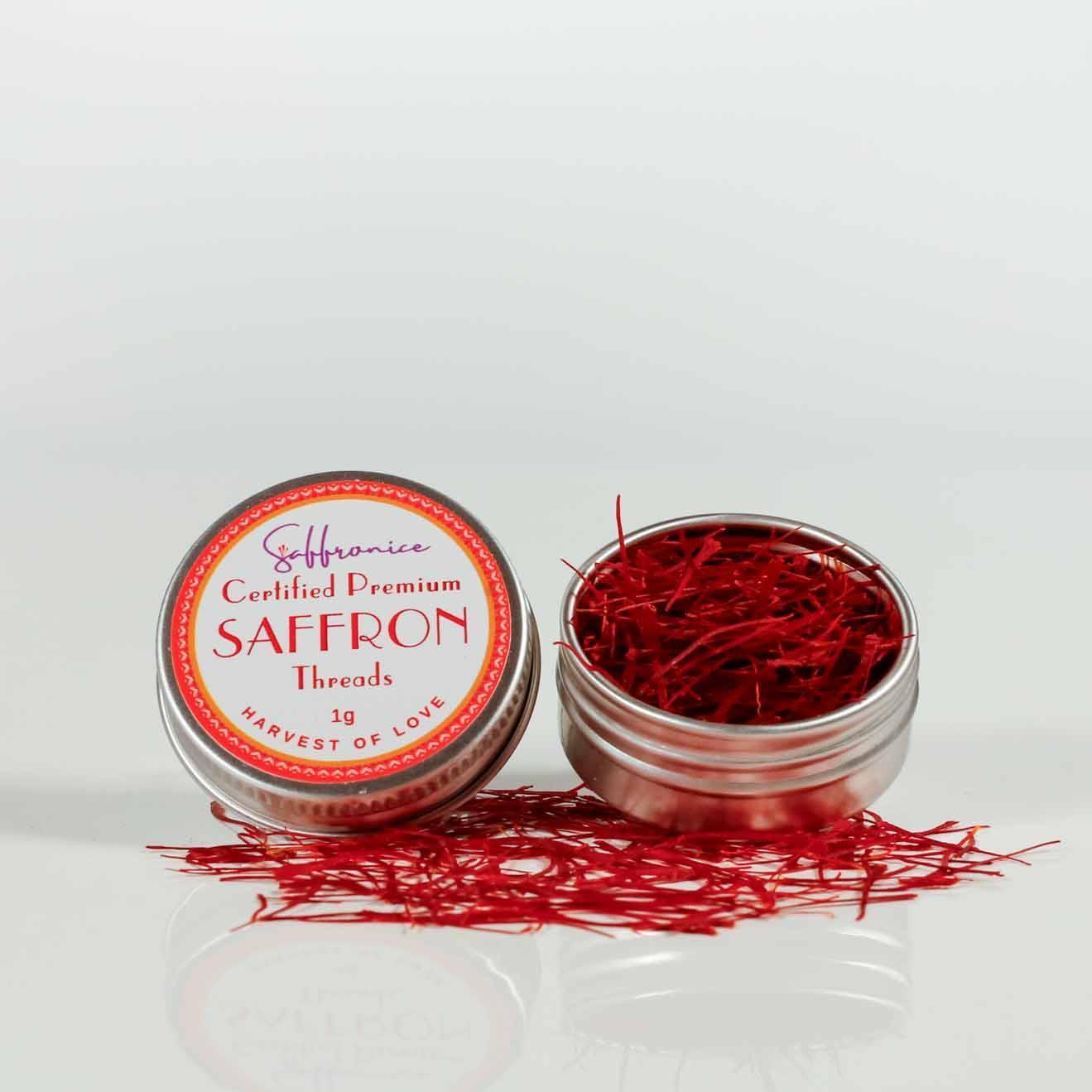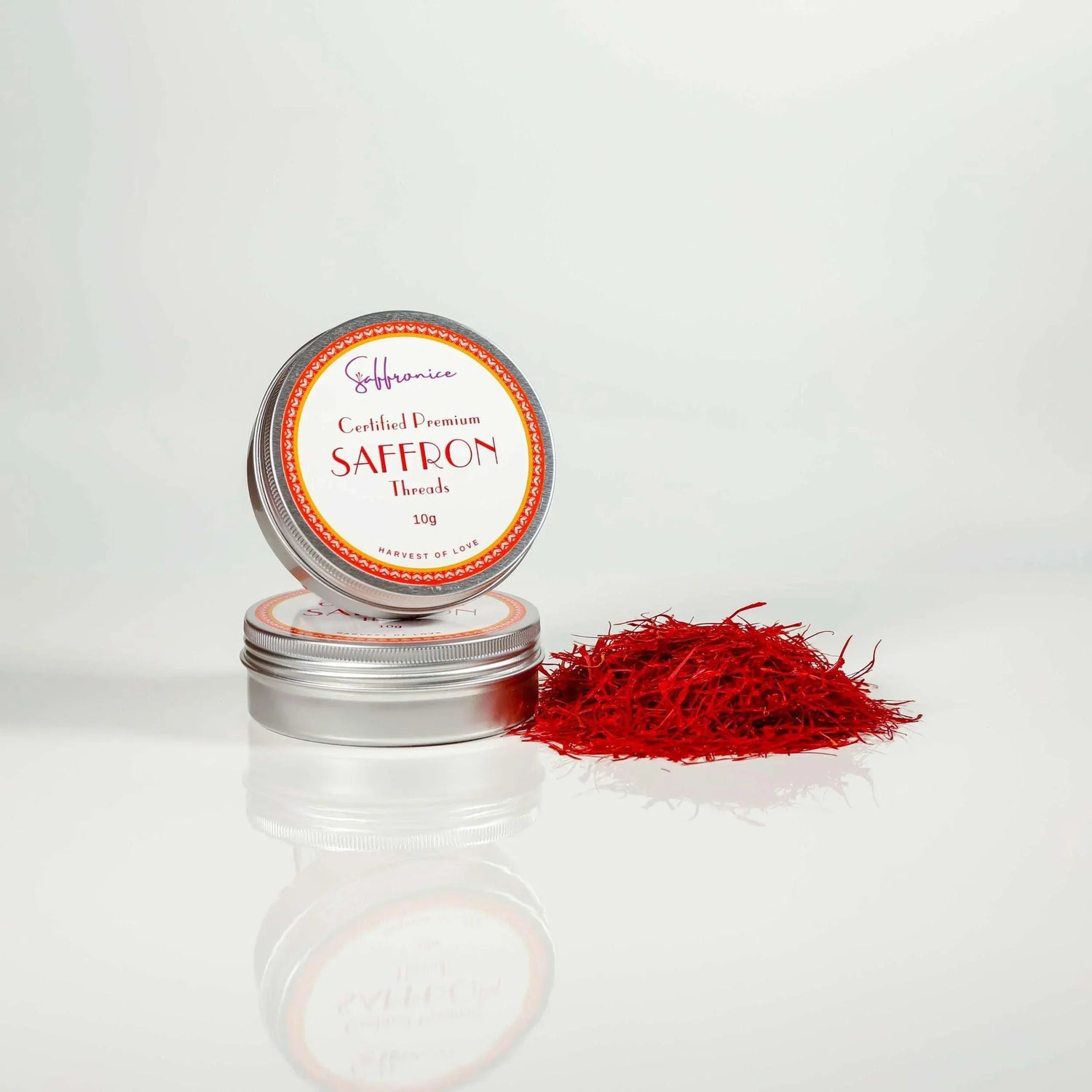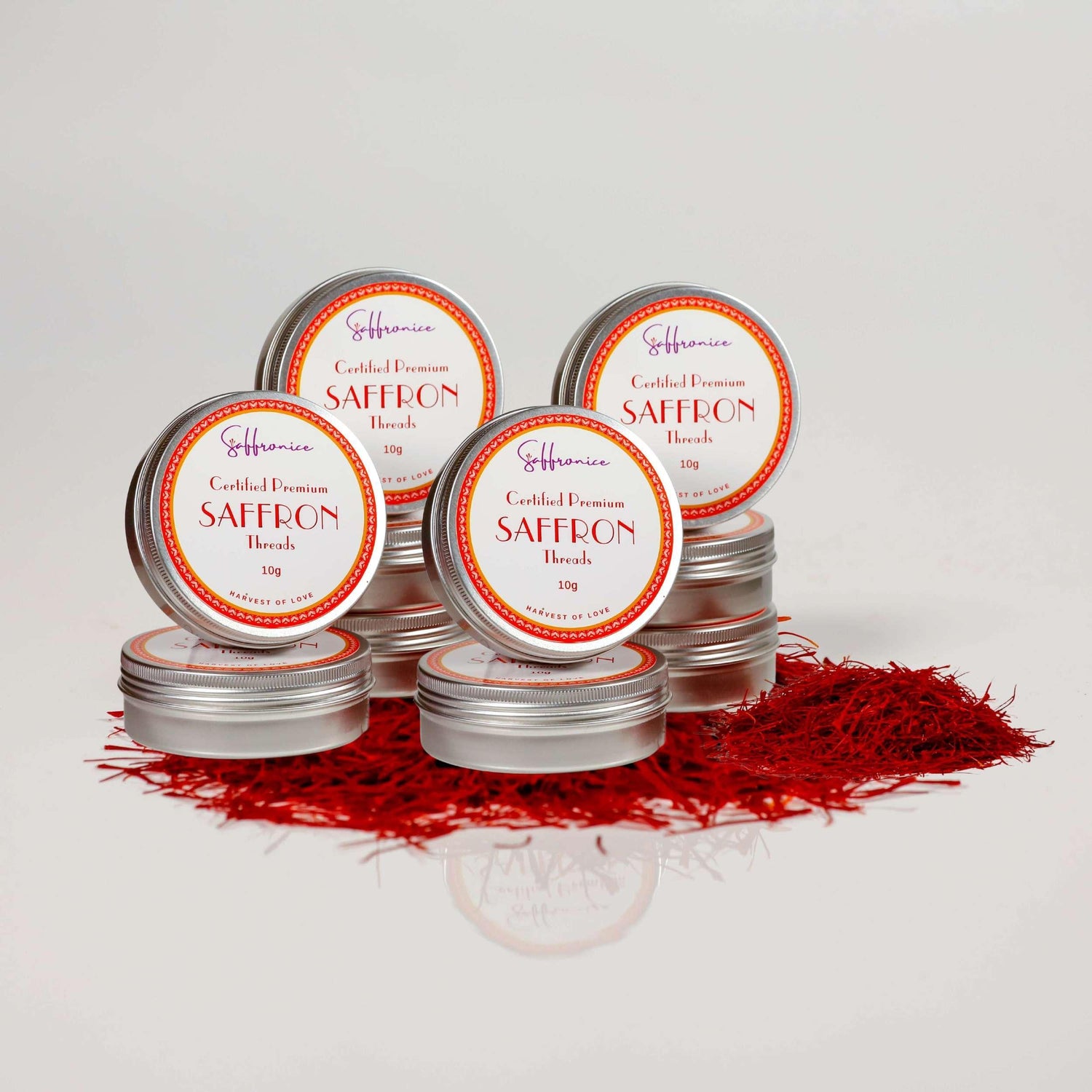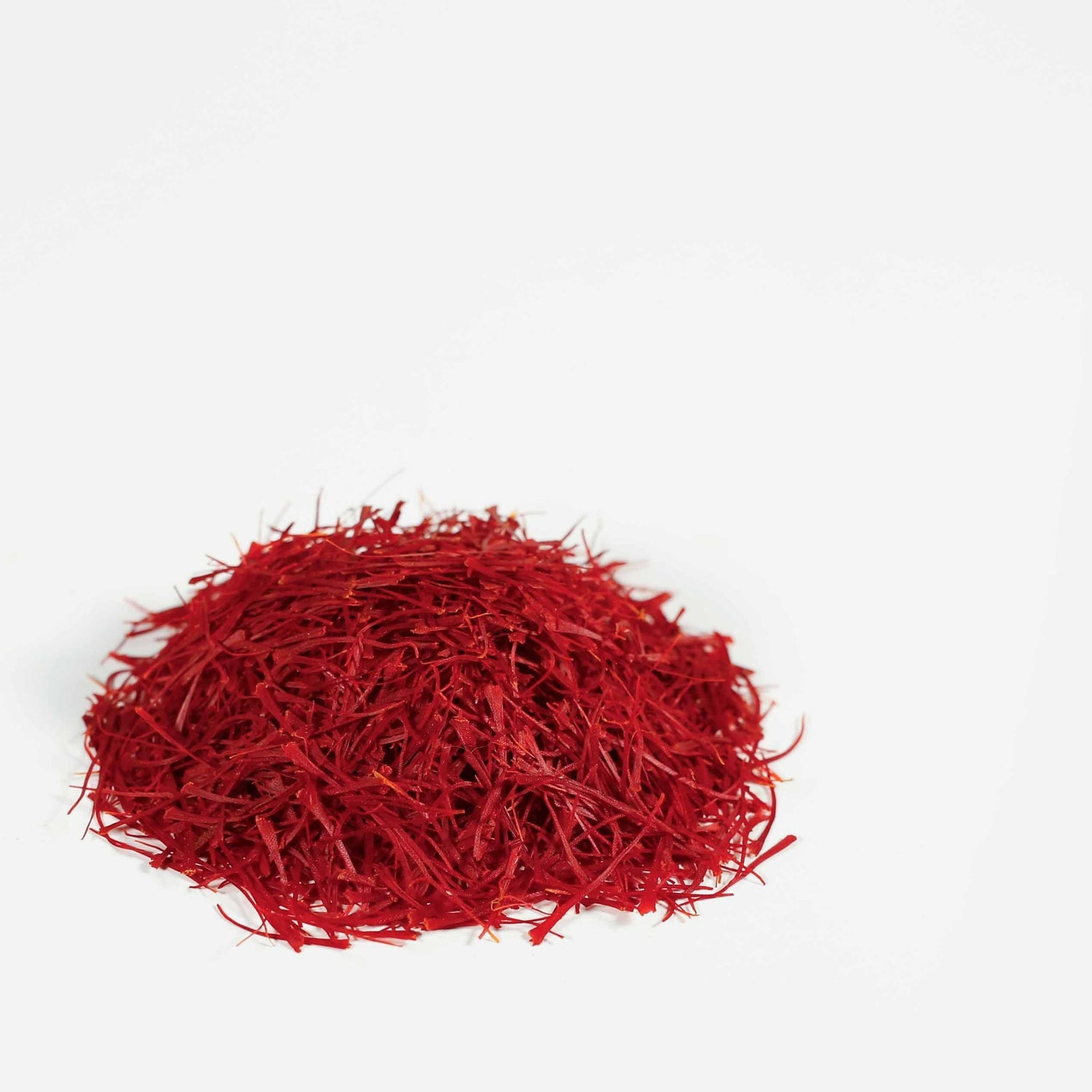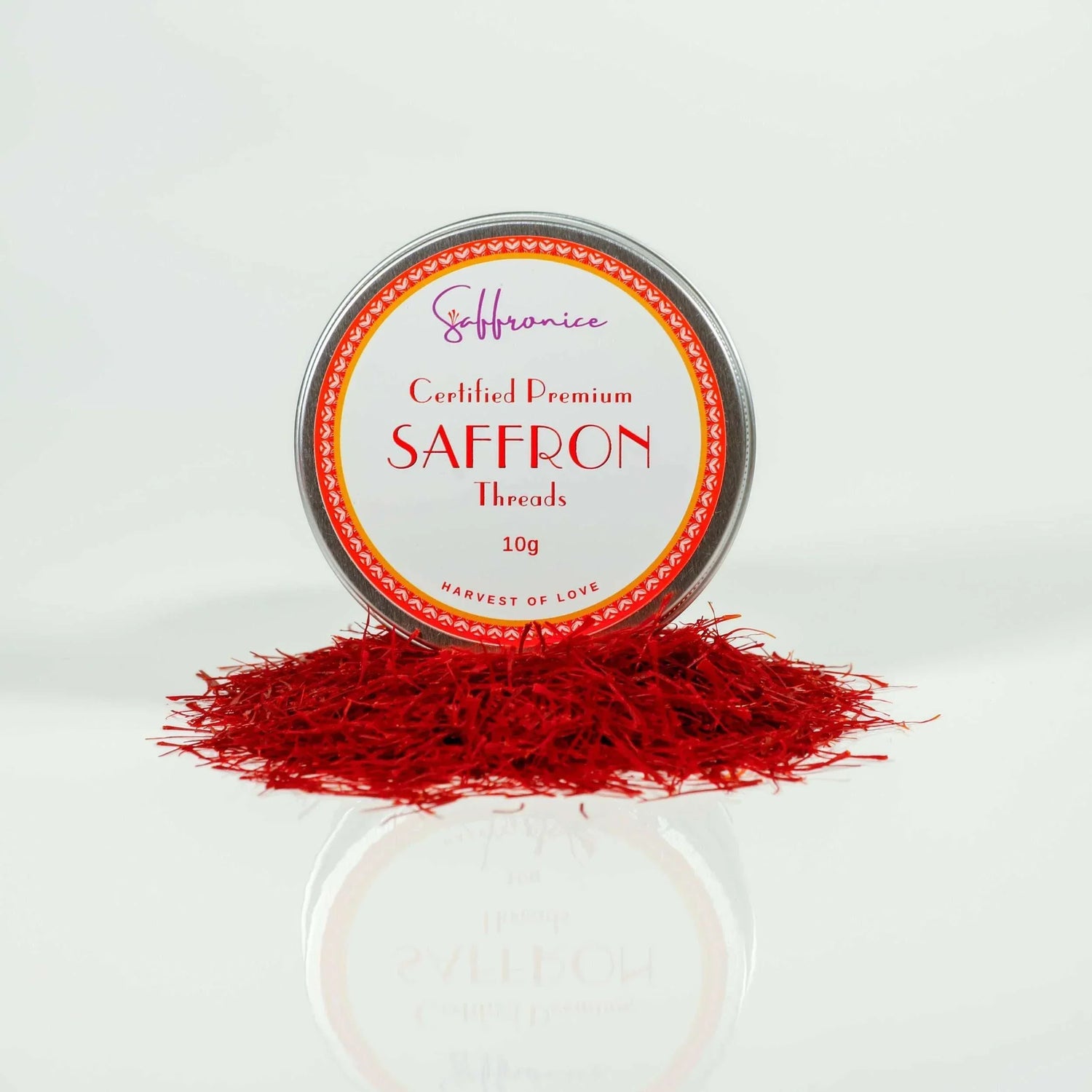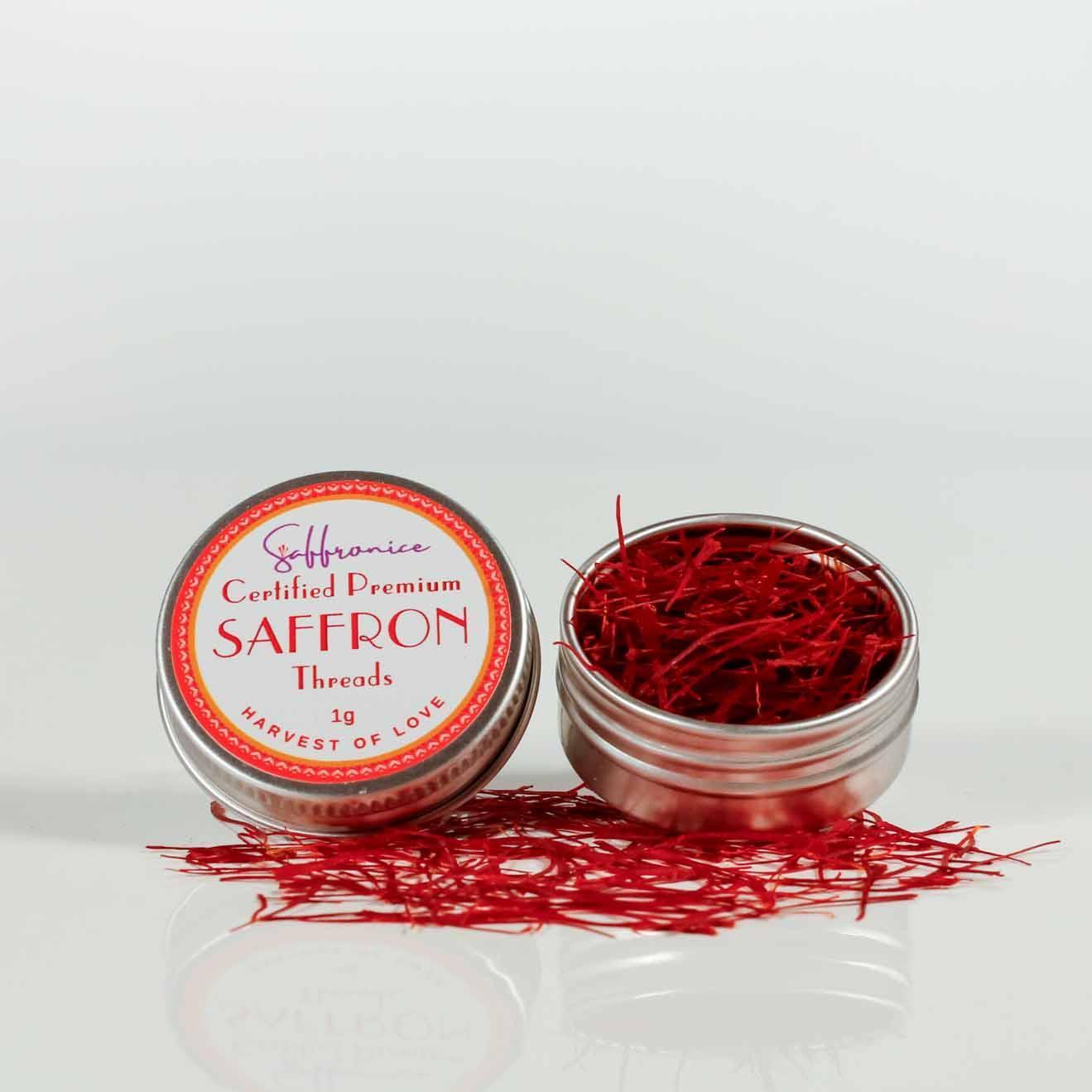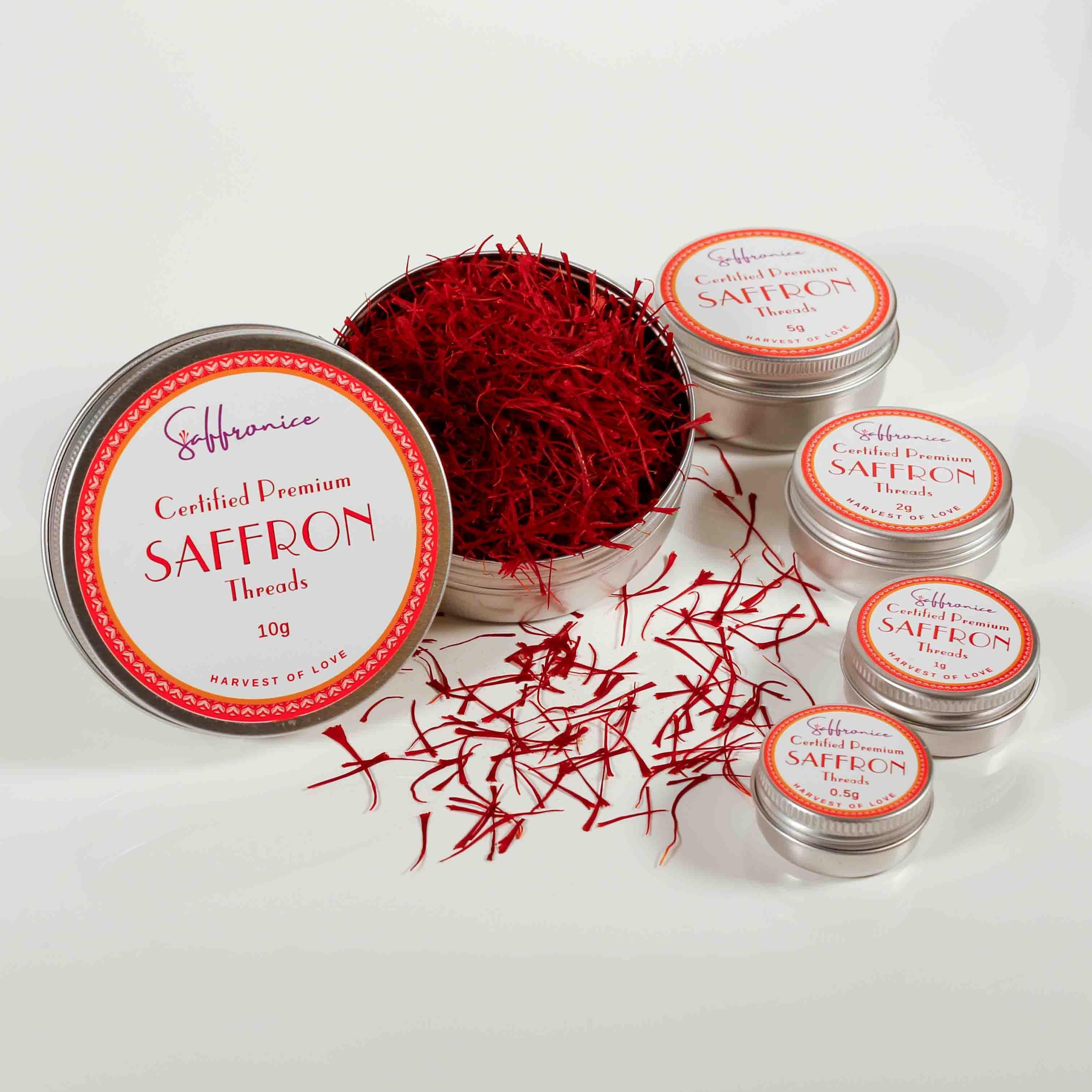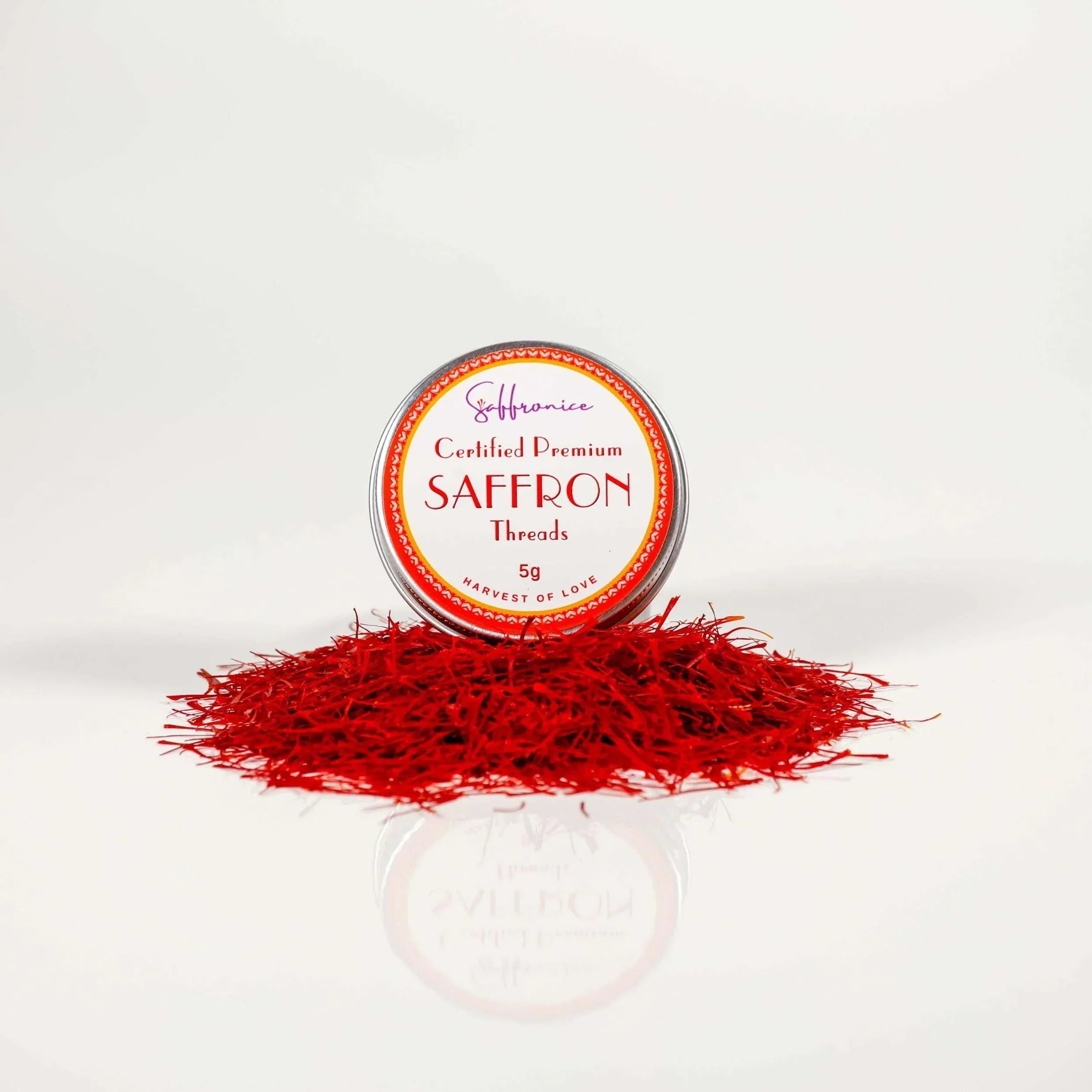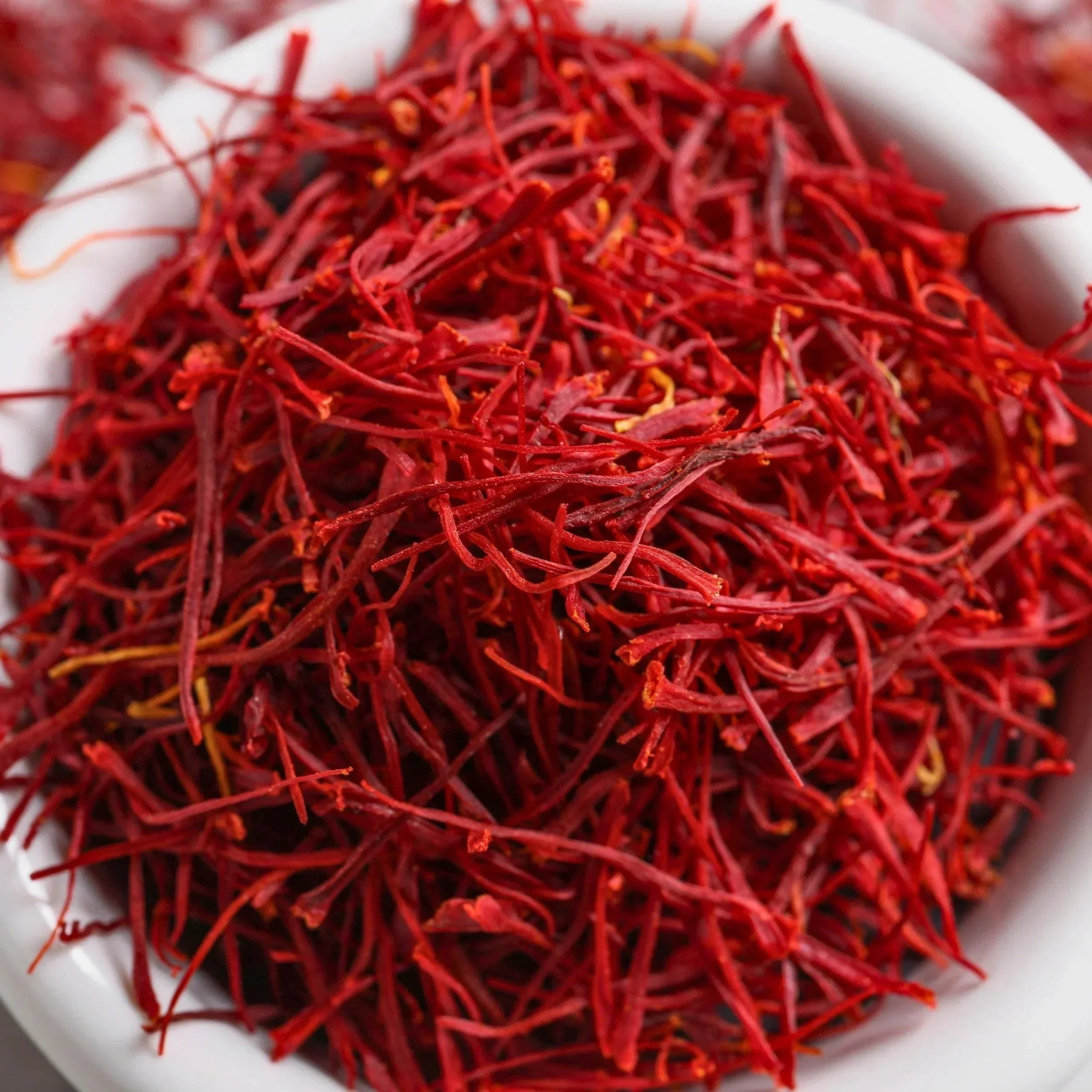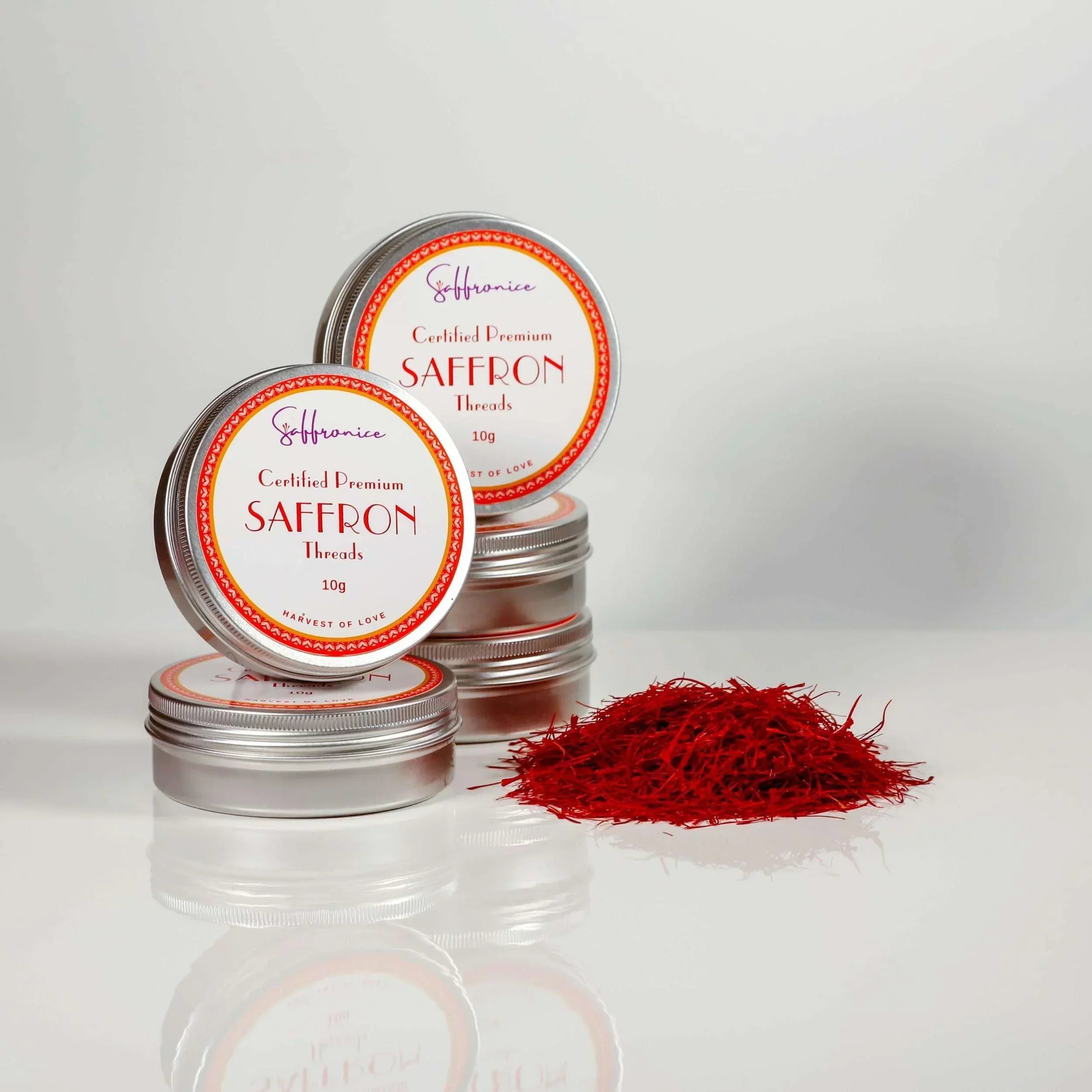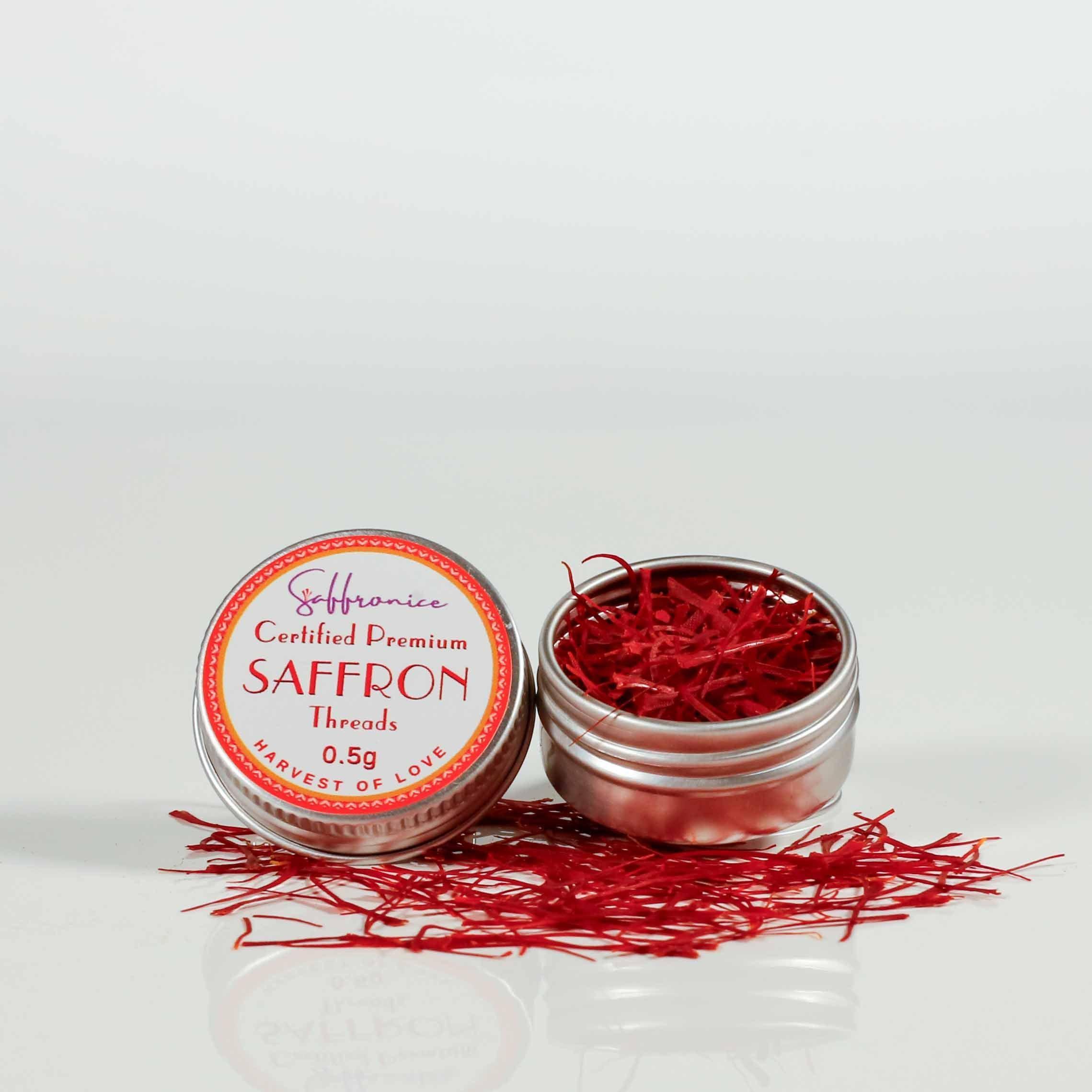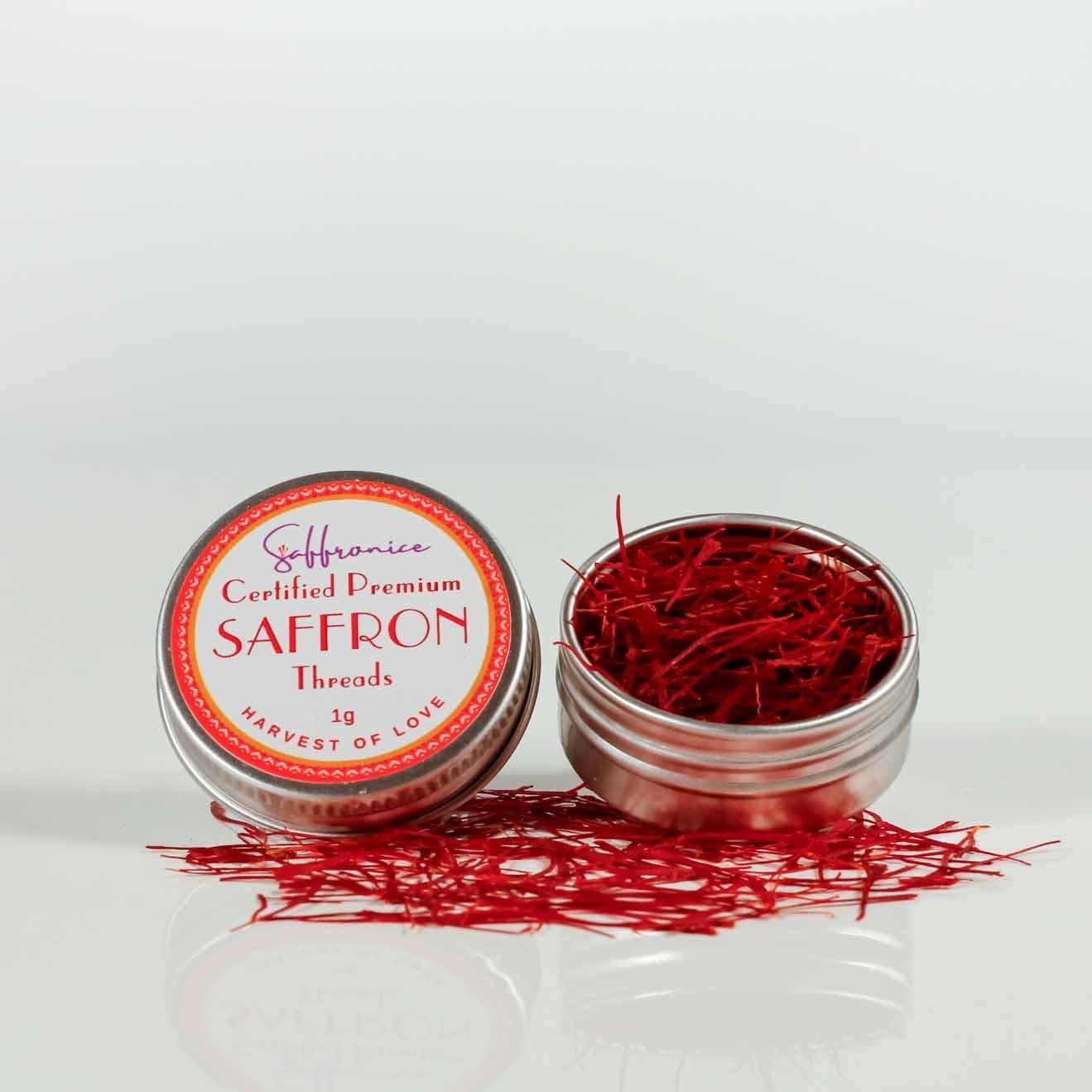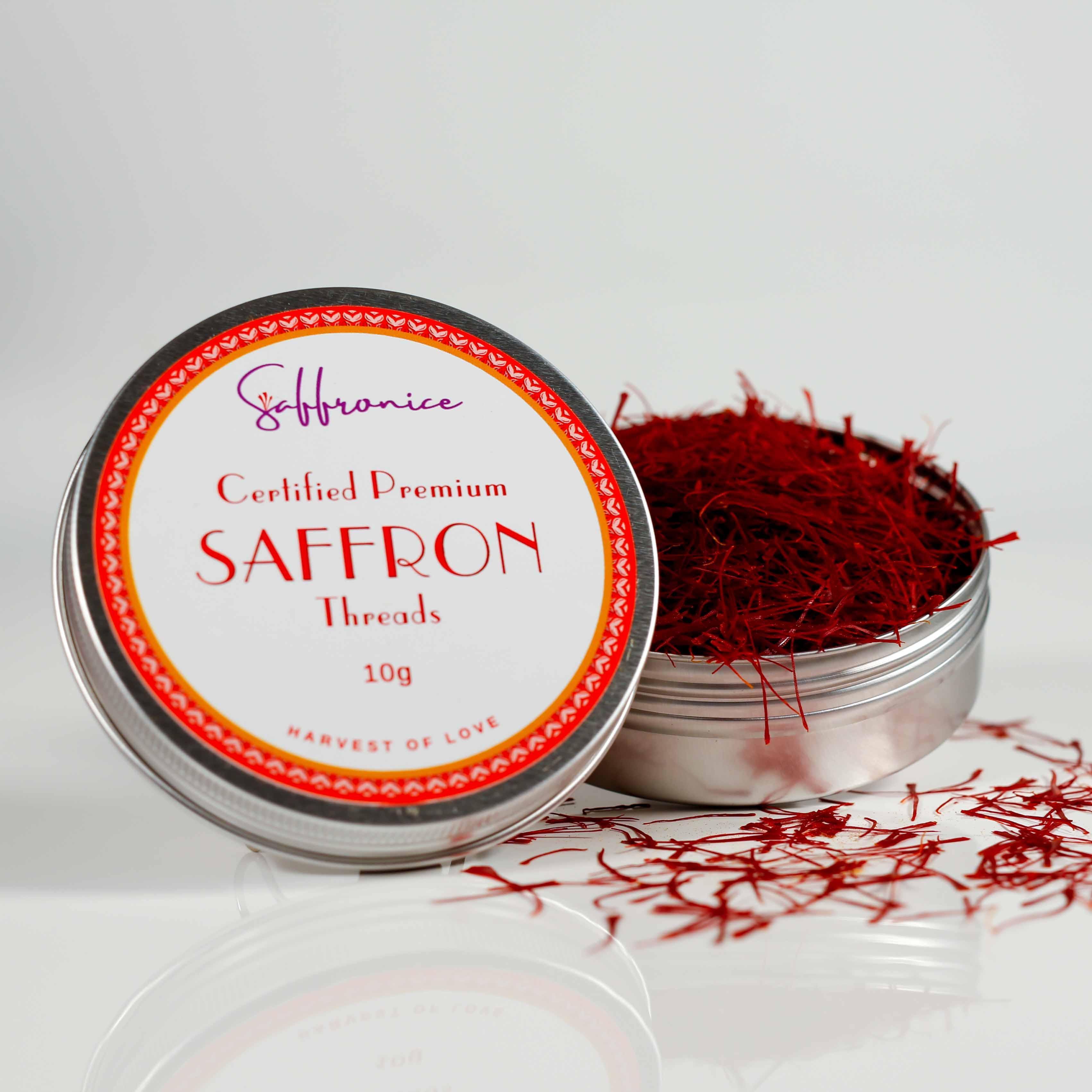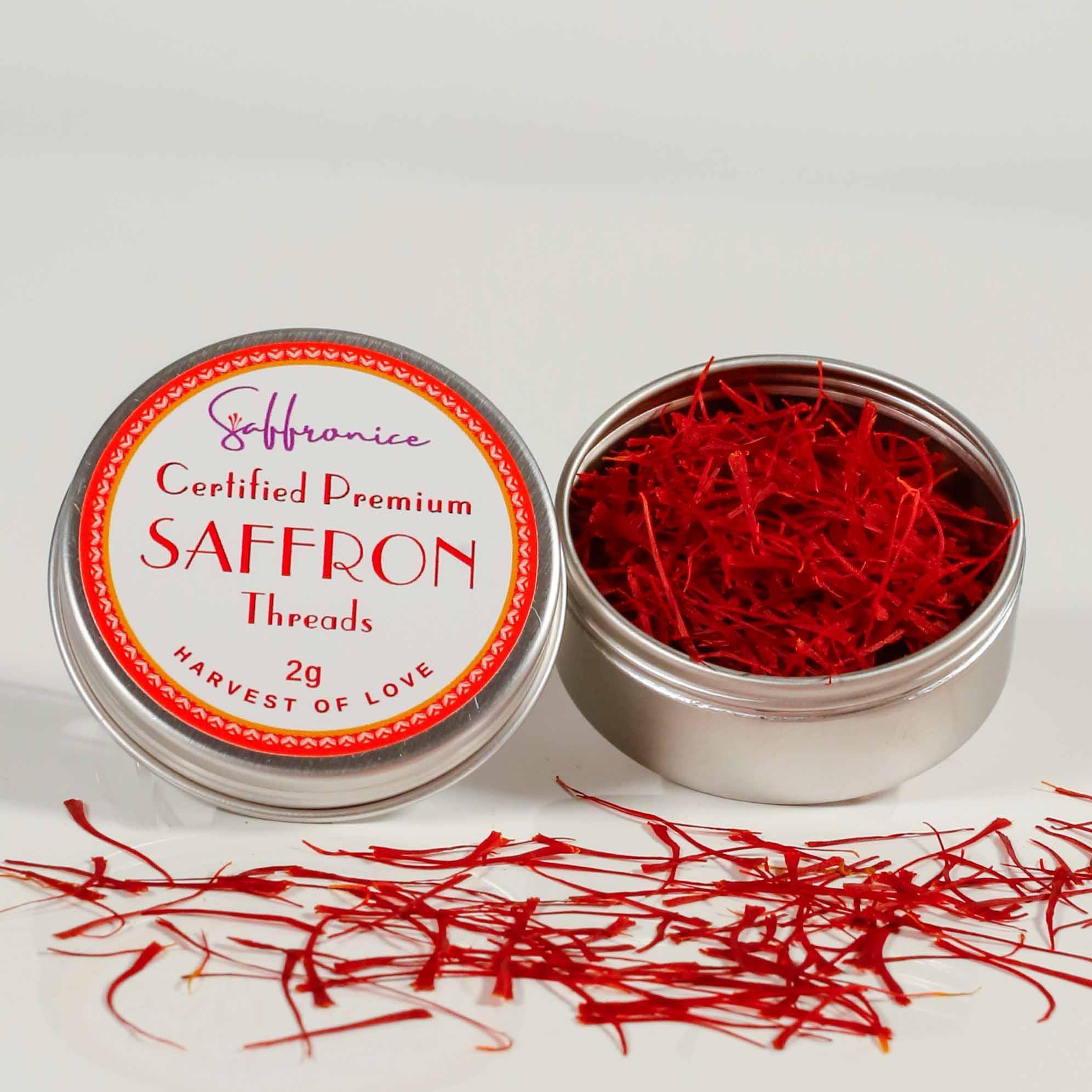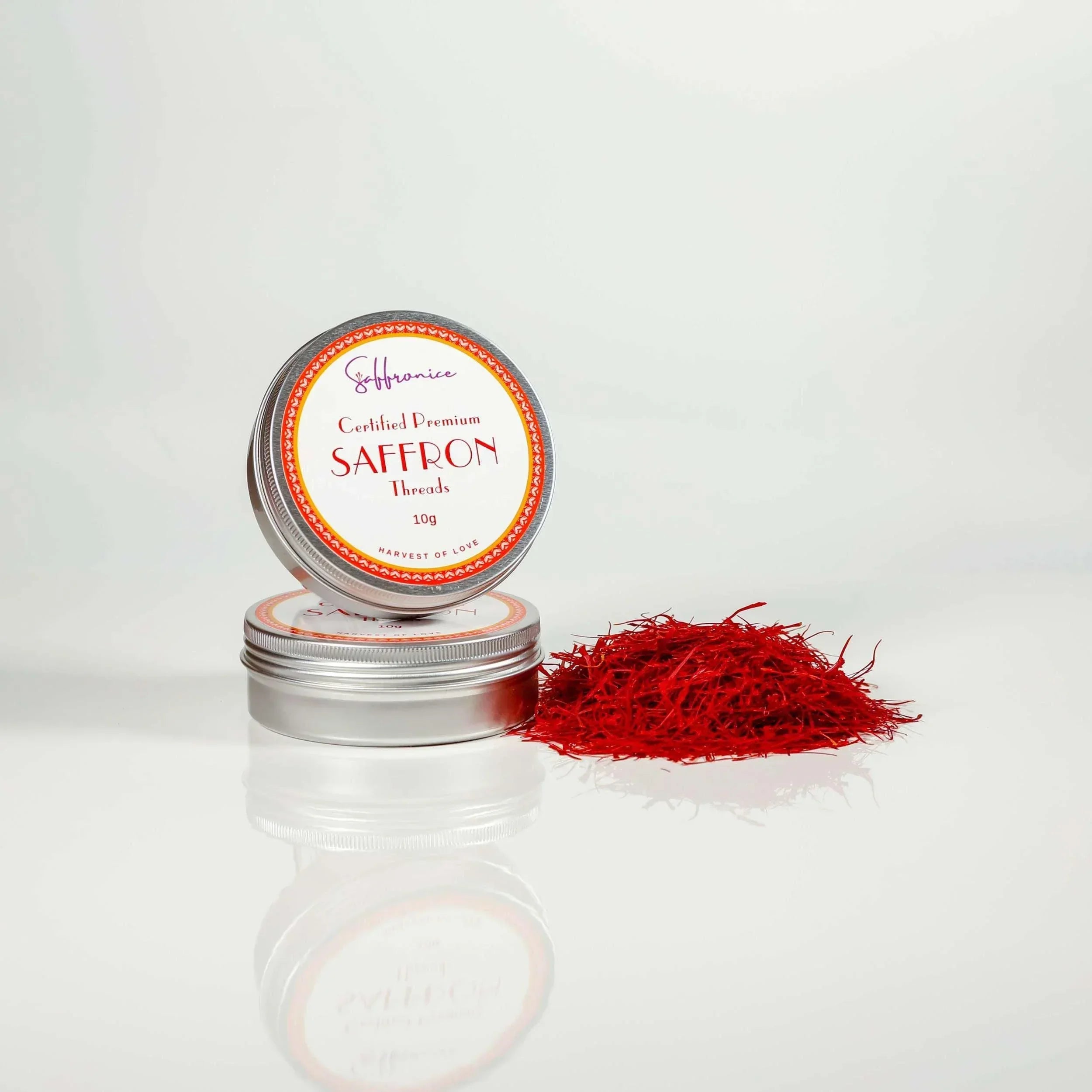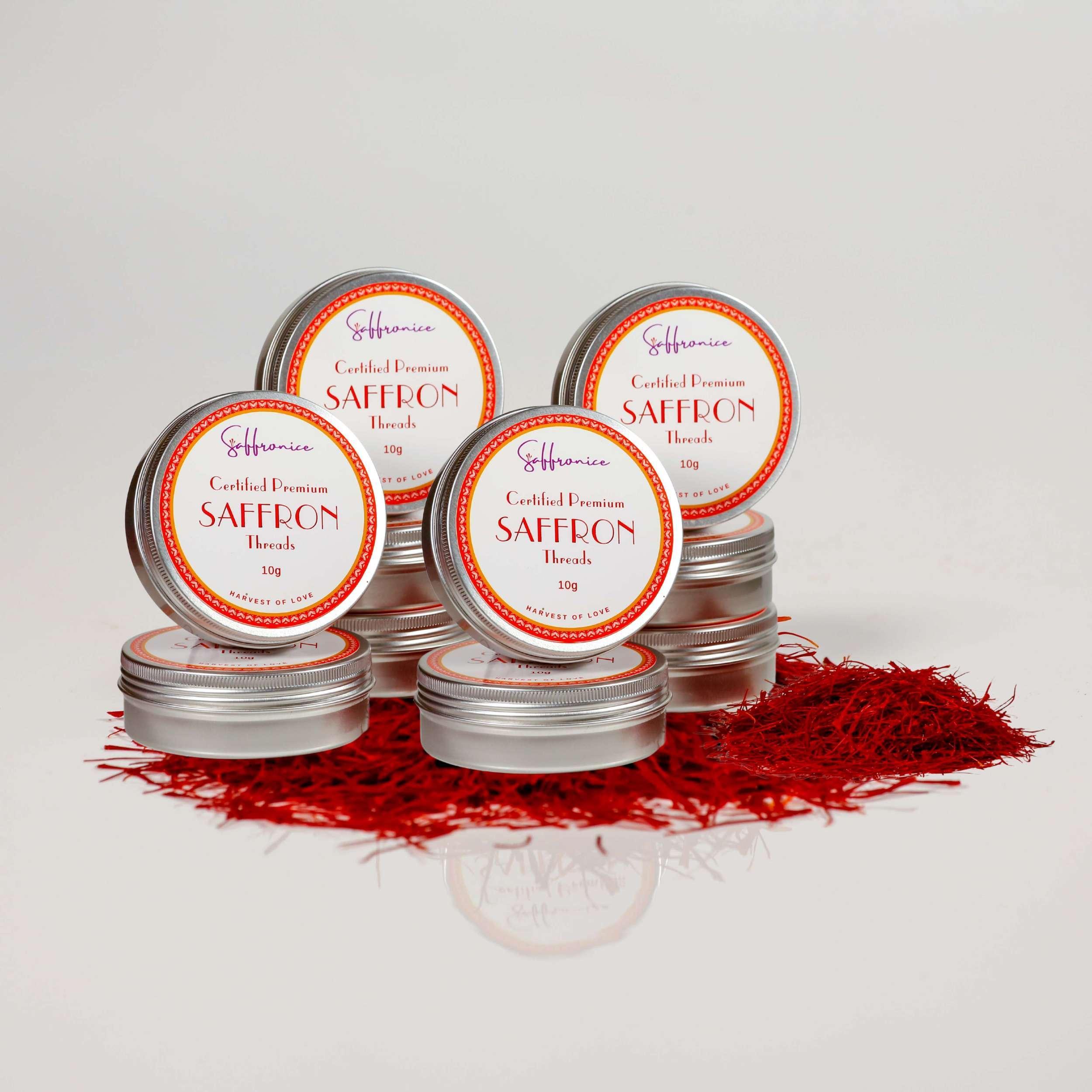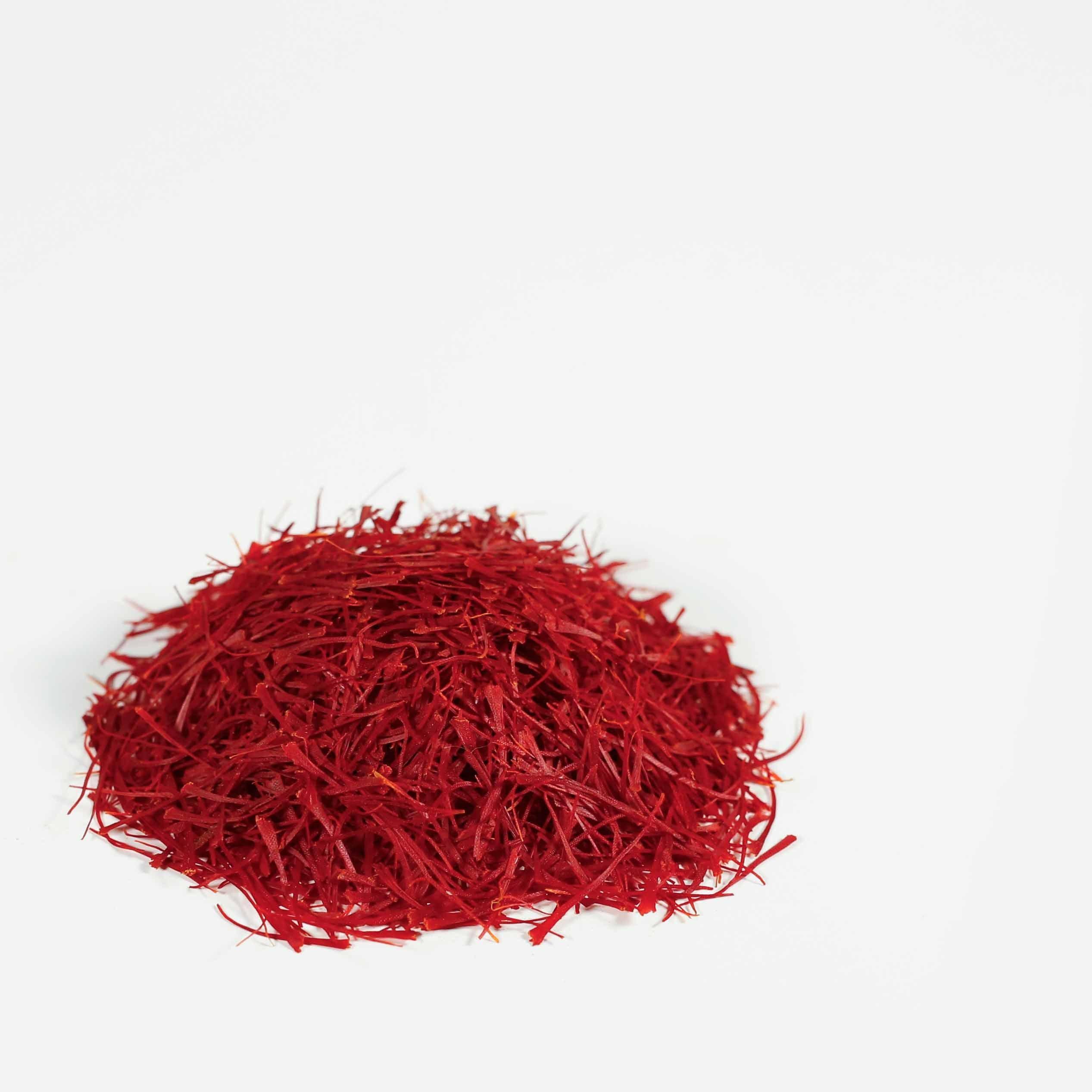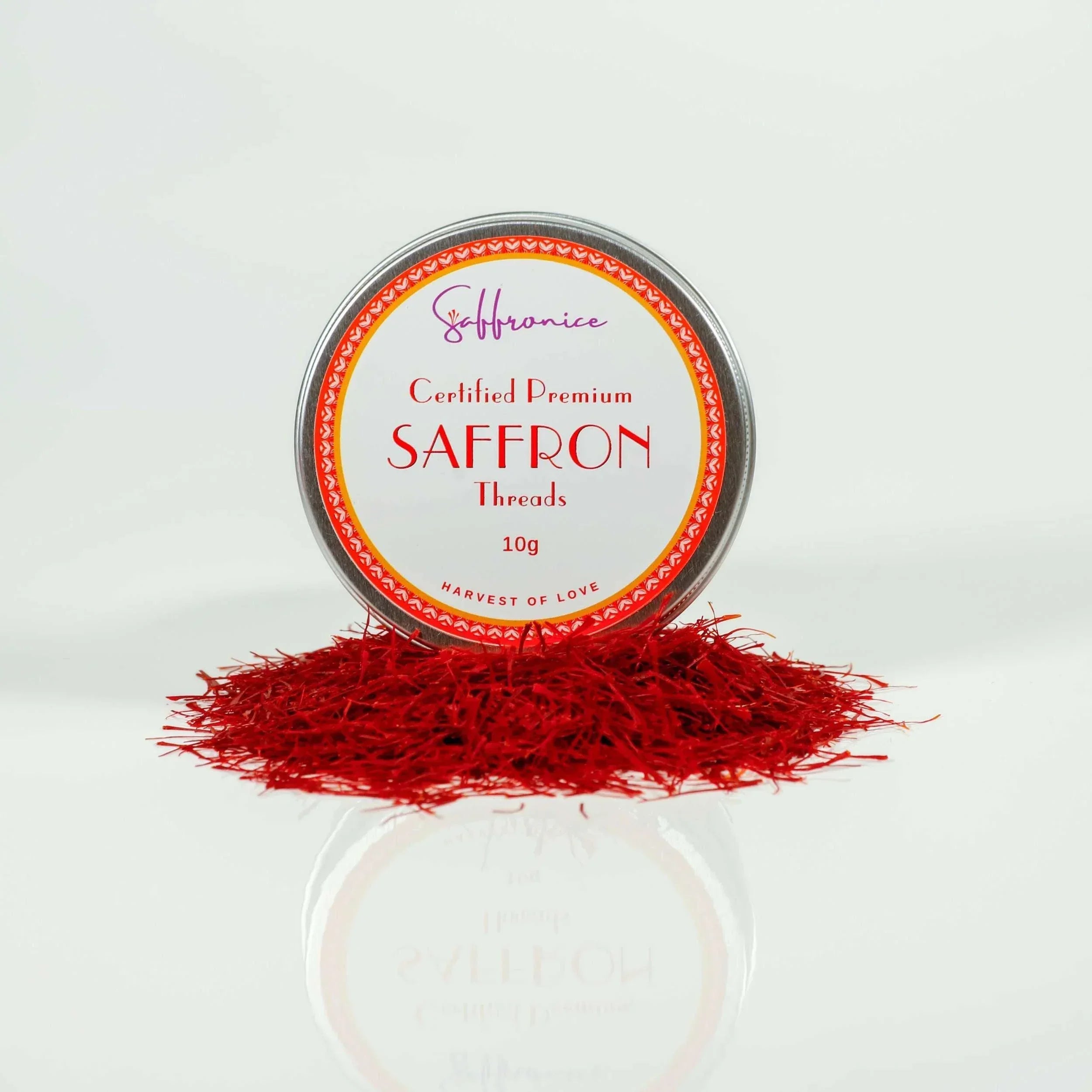Saffron tea is not just a delicious drink
It’s also a strong natural remedy with many benefits. This special tea can lift your spirits, improve memory, support eye health, and more. Made from the delicate threads of the Crocus sativus flower, saffron tea is famous for its unique taste and impressive health benefits.
Do you know how to make saffron tea correctly?
If not, you might be missing out on its great advantages. In this post, we’ll share an easy recipe for making saffron tea and explain what you can expect from drinking it regularly.
Whether you want to boost your mood or enhance your memory, adding saffron tea to your daily routine can be very helpful. So, let’s explore the health benefits of saffron and find the best ways to enjoy this amazing drink!

When to Add Your Saffron
Saffron is a delicate spice, so it’s important to prepare it carefully if you want to enjoy the health benefits of saffron tea. Here are some tips on when to add saffron:
- Watch the temperature: Add saffron to water that isn’t too hot. If you put it in boiling water, you might lose some of its health benefits and unique flavor.
- Find the right temperature: The best temperature for making saffron tea is around 70°C (176°F). You can use a thermometer or wait a few minutes after boiling the water before adding saffron.
- Consider infusion time: Remember that cooler water takes longer for saffron to release its color and smell. This is called saffron infusion time, and it usually takes about 5-7 minutes for the saffron to fully blend with the water.
By following these tips, you can make sure you’re getting the most out of your saffron tea and enjoying all its health benefits.
Boosting Health Benefits with Ginger
Adding ginger to your saffron tea can enhance its health benefits even more. This combination is great for anyone looking into herbal supplements or natural remedies in Ayurvedic medicine.
The Value of Saffron
Even though saffron can be pricier than other spices, its special qualities make it worth the cost. This is especially true for those seeking effective treatments for autoimmune disorders or wanting to treat themselves to something luxurious in their daily routine.
What Teas Can You Add Saffron To?
You can add saffron threads to many types of teas, flowers, herbs, and spices. I enjoy loose leaf English breakfast tea, so I like to add saffron to it. There are many tasty saffron tea mixes you can try, like combining saffron with cinnamon, cardamom, rose petals, and orange blossom.
If you prefer herbal teas with saffron, you might mix it with slippery elm for a calming effect or make a comforting ginger and saffron tea that shows off saffron's benefits. Saffron pairs well with most flavors and gives your tea a lovely golden color. You can also make saffron tea simply with warm water and honey or sugar if that’s your preference.
Saffron is also great for cooking; try using it in recipes that boost both flavor and color. It works well in dishes that use saffron and milk, creating rich sauces or creamy risottos. If you want something good for digestion, think about mixing saffron with chaga tea for an earthy yet uplifting drink.
Don’t forget to check out the health benefits too—many people enjoy saffron tea not just for its great taste but also for improvements in mood and skin health. For those facing issues like psoriasis, Dr. Pagano often suggests natural remedies that include Neem Leaf along with organic saffron tea for their combined effects.

How Much Saffron Should You Add?
How much saffron you use is up to you, so feel free to experiment with the flavor. I personally enjoy a lot of saffron, so I usually add about 50-100mg, which is a generous pinch. For one person, I recommend at least 20mg; using less than that won't give you much taste or benefit. Saffron is pricey, but a small amount can make a big difference.
If you're new to making saffron tea, start with that minimum amount to really enjoy its unique flavor and health benefits. When cooking with saffron, remember that quality matters—choose saffron threads over powder for a stronger taste. However, if you do opt for saffron powder instead of threads, you'll only need about 10-20mg. You can find high-quality saffron powder here.
Store your saffron in an airtight container in the fridge, away from light and heat, to keep it fresh—this is important because of its high cost and strength.
What Are the Benefits of Saffron Tea?
Saffron tea has many health benefits that can lift your mood, improve brain function, support eye health, increase blood flow, and help with weight control. Here are some of the main benefits of saffron tea supported by research:
1. Boosts Mood
Saffron can increase serotonin levels in the body, which helps regulate mood, appetite, and sleep. Studies show that saffron may act like an antidepressant and alleviate symptoms of PMS and menopause.
2. Improves Brain Function
Saffron is known to enhance memory and brain function by protecting brain cells from damage and inflammation. Research suggests that saffron can help improve memory and learning in people with Alzheimer's as well as in healthy adults.
3. Protects Eye Health
This bright spice can help protect your eyes from age-related macular degeneration (AMD), a common cause of vision loss in older people. Studies have found that saffron can improve vision sharpness and contrast sensitivity for those with AMD.
4. Boosts Blood Circulation
Saffron tea may enhance blood flow by lowering blood pressure and cholesterol levels. Research indicates it could reduce the risk of heart disease and stroke.
5. Aids Weight Management
Saffron can help with weight loss by reducing appetite and boosting metabolism. Studies show that saffron tea can decrease snacking habits and body fat in overweight women.
Besides these benefits, you might want to check out other herbal remedies for digestion or try an in-depth exploration of Saffron Tea, including its benefits and recipes, refer to The Ultimate Guide to Saffron Tea. and add saffron to your routine. If you're interested in natural health approaches, looking into Dr. Pagano's diet might give you more ideas on enhancing your well-being. Also, consider exploring the benefits of combining saffron with ginger in tea.
To fully enjoy these benefits, it's important to learn how to brew loose leaf tea correctly. You can find a simple method for making delicious tea. Additionally, if you're looking for more ways to use this golden spice in your diet, there are various saffron drink recipes available that taste great and offer health advantages.

What are the side effects of Saffron tea?
Saffron tea is usually safe for most people when consumed in moderation, but it can have some side effects, especially if taken in large amounts (over 5 grams), which can cause saffron toxicity. Some possible side effects include:
- dry mouth
- anxiety
- restlessness
- drowsiness
- low mood
- sweating
- nausea or vomiting
- constipation or diarrhea
- changes in appetite
- flushing
- headache
Also, some people may have allergic reactions to saffron, especially those who are sensitive to pollen or saffron itself. It's a good idea to consult a doctor about saffron use if you have any health issues or are on medication.
What Are the Ingredients in Saffron?
The main active compounds in saffron are crocin, picrocrocin, and safranal. These substances can easily change when exposed to heat or sunlight, so it's important to store and use saffron carefully.
- Crocin gives saffron its bright color.
- Picrocrocin adds to saffron's unique flavor.
- Safranal provides saffron with its special smell.
These compounds have different effects on the body, including antioxidant benefits, anti-inflammatory properties, mood-lifting effects, protection for the nervous system, and potential cancer-fighting qualities.
Saffron tea can be a great drink that offers many health benefits if made properly. By following some easy tips, you can enjoy saffron tea whenever you like. You might also want to try mixing saffron with black tea or adding turmeric for extra advantages.
Before adding saffron tea to your diet, it's a good idea to check for any dietary restrictions related to skin conditions to make sure it suits your health needs.
So why not get some saffron and start brewing today? Don't forget to look at reviews for saffron tea to find the best quality available.
FAQs (Frequently Asked Questions)
What are the benefits of saffron tea?
Saffron tea is a powerful natural remedy that can improve mood, enhance memory, support eye health, boost blood circulation, and aid in weight management.
How should I prepare saffron tea to retain its active compounds?
To retain the active compounds and flavor of saffron, add it to cooled water at approximately 70°C and infuse for 5-7 minutes for a full release of its goodness.
Can I combine saffron with other ingredients?
Yes, you can combine saffron with various teas, herbs, and spices to enhance both flavor and color.
What is the recommended quantity of saffron to use?
It is recommended to experiment with saffron quantities ranging from 20mg to 100mg based on personal preference.
What are the potential side effects of consuming saffron tea?
Potential side effects may include dry mouth, anxiety, drowsiness, sweating, nausea or vomiting, constipation or diarrhea, changes in appetite, flushing, and headache. Consult a doctor if needed.
What are the key chemicals found in saffron and their properties?
The key chemicals in saffron include crocin (which provides color), picrocrocin (which gives taste), and safranal (which contributes aroma). These compounds possess antioxidant and anti-inflammatory properties.



